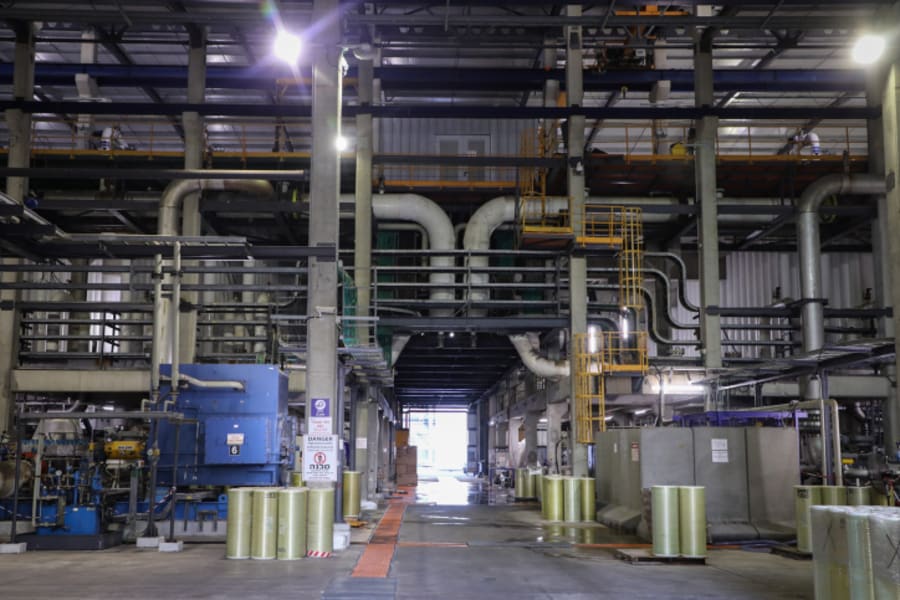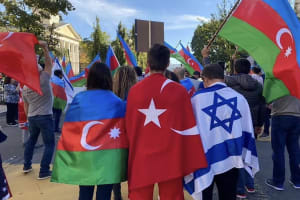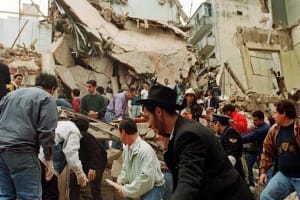Israel to sign water technology deal with Bahrain
Israeli water technologies have not only helped millions of people across Africa, the Middle East, Asia and South America

Israel’s national water company, Mekorot, is expected to sign a preliminary agreement with Bahrain to supply water desalination technology to the Gulf state.
The deal, which is worth millions of dollars, is only the beginning of water-related technology cooperation between Israel and the Gulf. Mekorot estimates that additional deals will be signed in the near future with Bahrain and the United Arab Emirates.
Mekorot CEO Eli Cohen played a key role in securing the deal, which will be signed by the Bahrain Electricity and Water Authority.
The two affluent but mostly arid Gulf states have reportedly expressed interest in Israeli expertise in water management systems, desalination technology, water quality control, waste and leak reduction and integration of management services.
Consisting mostly of desert, Bahrain and the UAE urgently need access to desalination of salt water for both consumption and agriculture. Bahrain in particular struggles with the quality of its water. Due to salt and pollution, water is often not drinkable from local wells. Bahrain, therefore, relies almost exclusively on costly imports of bottled drinking water.
Israel is well positioned to assist Bahrain and the UAE with their water scarcity challenges. From its inception, Israel has had to deal with its own water scarcity with approximately 60% of its limited territory consisting of arid desert and a rapidly expanding population. In the early 1960s, Israel developed the drip irrigation technology, which eventually revolutionized agricultures in water-scarce arid areas around the world. Over time, Israel emerged as a world leader in water-related technologies, lending its expertise to countries worldwide, especially in Africa and Asia.
Bahrain and the UAE will not be the first Middle Eastern countries to benefit from Israel’s advanced water-technologies. Following the Israeli-Jordanian peace agreement in 1994, the two countries began jointly addressing their shared limited water resources. Jerusalem agreed to provide Jordan with approximately 75 million cubic meters of water per year. In return, the Jordanian government agreed to recognize Israel’s rightful share to water from the shared Jordan and Yarmouk border rivers. Despite the currently cool diplomatic relations between Amman and Jerusalem, this agreement is still in force today
Egypt, the Palestinian Authority and the Gaza Strip have also benefited from Israel’s expertise in water management. The Israeli company Watergen recently donated two atmospheric water generators to Gaza. These generators can produce up to 6,000 liters of drinking water per day for the benefit of Gaza’s civilian population. The densely populated Gaza Strip has long suffered from insufficient amount of drinking water. Learning about Gaza’s chronic water crisis, Watergen’s owner, Russian-Israeli billionaire Mikhail Mirilashvili, decided to help the Gazans.
“Our goal was that everyone on Earth could be supplied with drinkable water,” Mirilashvili said. “It was immediately clear that we had to help our neighbors first.”
Israeli water technologies have not only helped millions of people across Africa, the Middle East, Asia and South America. Israel has also assisted advanced economies in arid zones, such as Australia and California with its water expertise. In 2016, the White House tapped Israeli water tech to help solve California’s growing water problems.

The All Israel News Staff is a team of journalists in Israel.














